Smart water management refers to an all-rounded management system that utilizes clouding computers and big data to achieve smart perception, smart simulation, smart diagnosis, smart warning, intelligent scheduling, intelligent processing, smart control and service, with the combination of a new generation of information technology, sensing technology, the Internet and mobile system, sewage treatment plant and the information system of water plants.
This article brings you a thorough understanding of what is smart water management with IoT technology and its corresponding applications and working principles.
What is smart water management system?
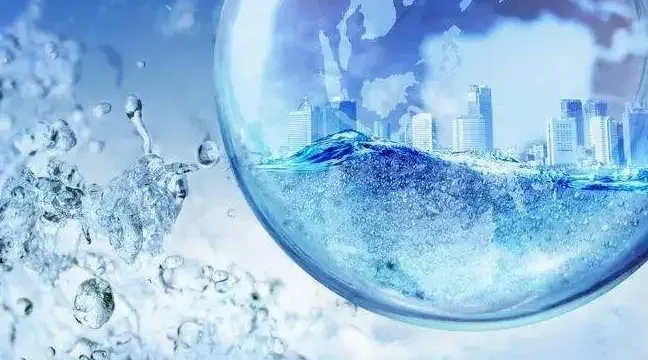
Smart water management refers to an all-rounded management system that utilizes clouding computer and big data to achieve smart perception, smart simulation, smart diagnosis, smart warning, intelligent scheduling, intelligent processing, smart control and service, with the combination of a new generation of information technology, sensing technology, the Internet and mobile system, sewage treatment plant and the information system of water plants.
With 24 hours of dynamic monitoring of water supply, the system can achieve digital, intelligent and standardized operation management of water companies as well as sewage treatment plants. The operational and logical analysis of sewage treatment factories can judge the reasonableness of relevant data to give a final situational analysis of sewage treatment factories. For example, whether the water quality reaches the standards; whether the sewage treatment factories function properly; whether the operational indicators are reasonable. Data monitoring points in the process of sewage treatments collected from the water and sewage processing technologies can offer basic data model analysis to smart water management model analysis and operational diagnosis. Diagnosis of pre-warning management methods of the operation tracking and tracing of water and sewage treatment plants is conducive for users to clearly know the abnormalities to enhance treatment efficiency and automatically generate operational diagnosis reports, thus giving convenience to analyze the operations of water factories and sewage processing plants.
What are components of smart water management?
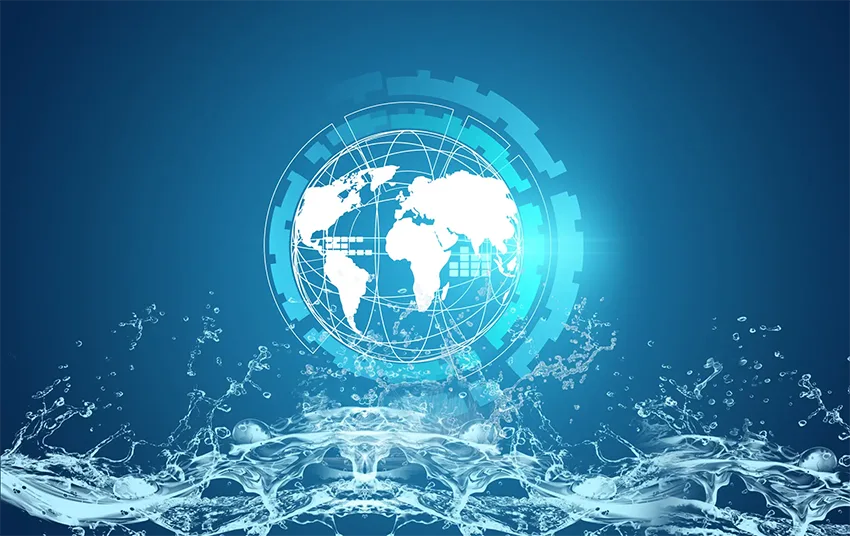
Installed with sensors, controllers, data collection instruments, gateways in each pump station, pipelines, aqueducts, sewage treatment plant, the intelligent water management system is able to transmit the production operation data to the data platforms in real-time. Then relevant responsible people will be shown and informed with the analysis results through the data platform which monitors and analysis intelligently all kinds of key data and provides warnings with different kinds and levels. Also, relevant results can be provided to the people in charge to help make decisions.
What are the IoT technologies being used in Smart water pipelines?
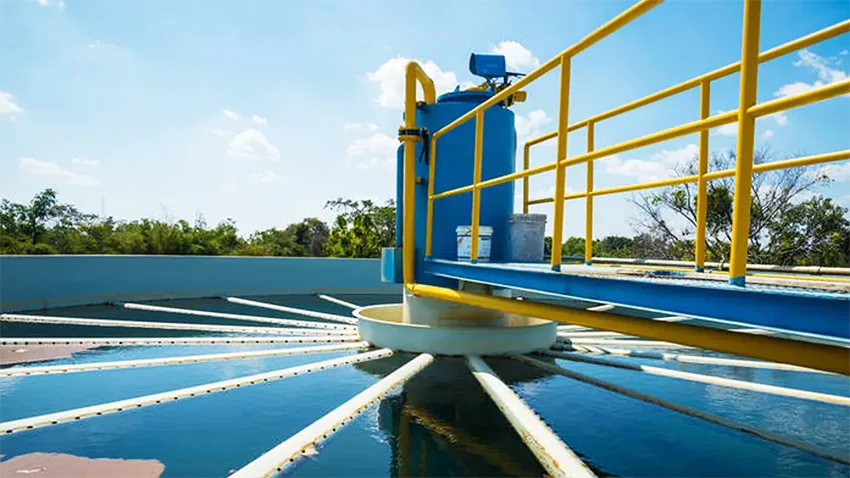
IoT constitutes a crucial part of a new generation of IT. It also remains an important development stage in the “information-based” era. On-site data of sewage treatment will be uploaded to the clouding platform using IoT technologies to achieve on-site real-time, remote operation and intelligence of water processing to realize smart water management.
(2) Big Data
With the introduction of big data technology, water enterprises can achieve the organic combination of traditional structured data management models and unstructured data management modes to achieve effective in-depth analysis of big data and the discovery of new knowledge so as to provide more powerful decision-making data for business operations.
(3) Cloud-computer Technology
Cloud computing is an Internet-based model for the addition, use and delivery of related services, typically involving the provision of dynamically scalable and often virtualized resources over the Internet.
(4) Mobile Internet
The water industry has started to understand and embrace the advantages of customer interactions. Through mobile Internet technology, water divisions can establish two-way communication directly with WeChat, Weibo, websites and smartphone apps as a way to enhance service quality and alert customers of possible water outages, leaks, pollution and so on. Interactive technology will play a more vital role in the future, and the available solutions will become more customized.
(5) Building Information Management
BIM is a 3D building mode on the basis of the information data of construction projects and simulates the actual information of a building through digital information simulation. It has eight traits of information completeness, information correlation, information consistency, visualization, coordination, simulation, optimization and mappability.
(6) Geographical Information System
GIS is also sometimes named “Geographic Information System”. It is a specific and very crucial spatial information system and technical system, which, with the support of computer hardware and software systems, collects, stores, manages, computes, analyzes, displays and describes data about geographic distribution in the space of the whole or part of the earth’s surface (including the atmosphere).
What is the importance of smart water management?
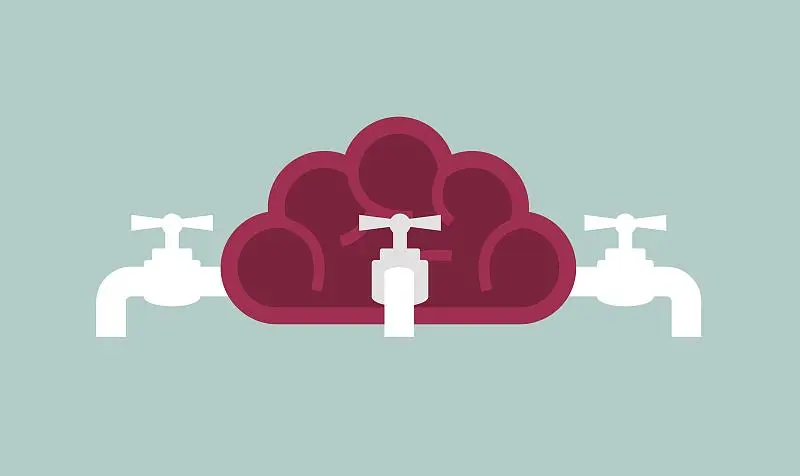
The application value of smart water system
As the water shortage, water environment pollution and other issues become increasingly prominent, “smart water” came into being with the boost of a new generation of information technology. It becomes the main direction for the transformation and upgrading of traditional water services. Also, it can achieve intelligent management of water from water control and scheduling, resource management and coordination, safety production and environmental protection, energy management and optimization and other aspects of business innovation.
(1) Social benefits of smart water management system solutions
1. The system plays a vital role in ensuring the safety of urban water supply, achieving the stable development of society and building a harmonious society.
2. The system can significantly enhance the quality of urban water supply, thus improving the quality of life of residents and promoting the overall growth of the urban economy.
3. The system can greatly improve water supply services. Intelligent water system is helpful for water supply units to manufacture qualified water products but also to strengthen the security of their own water supply and raise the sense of service so as to ensure the quality of water supply and water supply security under the premise of making water supply services more intelligent and modern.
(2) The benefits of smart water management system solutions for companies
The application of intelligent water management system can substantially enhance the quality of water supply and ensure its safety of water supply. Thus, the intelligent water management system can, to a certain extent, enhance the social image of water companies, boost management efficiency, reduce management costs and contribute to the construction of urban infrastructure, thus promoting the overall growth of the city’s economy.
Smart City Smart water management
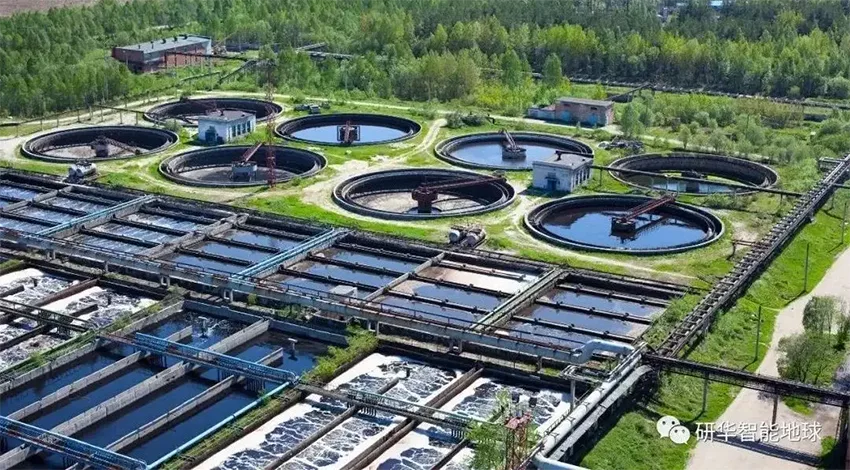
The main targets of urban ecological water are vegetation, landscape, urban rivers and lakes as well as wild aquatic animals. It this case, our products play the role of monitoring, measurement, early warning, control and evaluation. Professional equipment and soft system platform can be supplied in the parts that need water resources monitoring. As an intelligent system, the equipment and procedures can complete the M2M closed-loop self-control, measurement and control methods, and any configurations can be set up. It is a hope that when the system is up and running, it will automatically sprinkle irrigation when the vegetation is dry and automatically recharge the ecological water when the groundwater is over-extracted. Just like human beings, when they are thirsty, it is as simple and natural as drinking a glass of fresh water.
Of course, the city’s ecological water should also contain heavy rainfall brought about by urban flooding, rainwater storage and utilization as well as sponge cities, which are also the other part of urban ecological water. We should not forget about the floods and all the legacy problems of urban ecological water use through replenishing the ecological environment.
A lot of enterprises have already started to work on such programs. However, they have lost many chances for the reason that they produce intelligent devices without a perfect data transmission system. Then we can help solve this problem. The enterprise’s embedded low-power DTU products can complete the upgrade of the device or the transformation of the data transmission function without changing the size and appearance of the original devices so that it has perfect data transmission and communication functions to meet the functional needs of IoT devices.
Under the impact of 5G and mobile IoT, we can also provide NB-IoT terminal sensing products that support narrowband wireless IoT or embedded low-power data transmission products for equipment transformation and upgrade and wireless communication routers that support 5G communication. Like the previous hydrants of fire hydrants as well as ecological water replenishment, wireless water monitoring, metering, early warning and control can be achieved. With the transformation and integration of wireless intelligent control terminal and fire hydrant, as well as ecological water replenishment, we can complete the monitoring and control of water resources. The data collection can be completely 4G or NB-IoT wireless network transmission. Also, it has GPS and Beidou communication modes that can be accurately positioned. The media of measurement and billing can be used to start, stop and measure the fire hydrant and ecological water replenishment hydrant with a special IC card.
IoT water management in agriculture
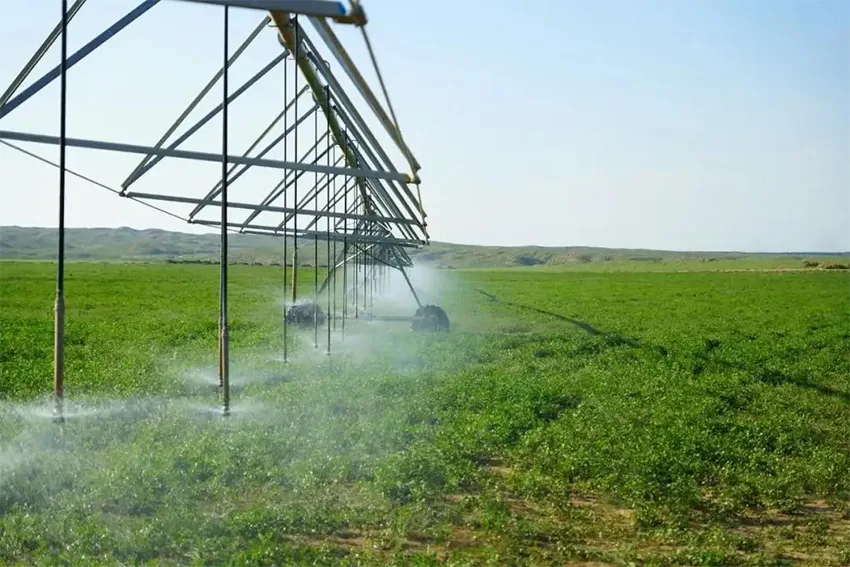
The agricultural irrigation system with the features of high efficiency, water-saving and automation
The agricultural irrigation system, featuring highly efficient, water-saving, automation, is composed of water and fertilizer integrated irrigation system, water and fertilizer machine monitoring system, valve control system, soil moisture monitoring system, meteorological monitoring system, solar power supply system, communication network and cloud platform. The communication between the cloud platform and each monitoring system is realized by the controller equipment of each system through 4G network, and each subsystem completes monitoring and management control through valve control, sensors and controllers.
Water and fertilizer integration equipment can download and implement the water and fertilizer integration irrigation solutions. It is mainly composed of control units, fertilizer proportioning units, raw liquid mixing units, fertilizer application units, filtration units and fertilizer application amount analysis units. Through the IoT terminal management controllers and monitoring instruments, the product can be remotely networked with the data centers, collecting and uploading the environment, soil and crop information on site, and automatically downloading and executing the water and fertilizer integration irrigation plan pushed by the cloud platform, thus realizing the whole chain management of irrigation and fertilization from scientific decision to accurate execution.
The monitoring of water level and management of damns
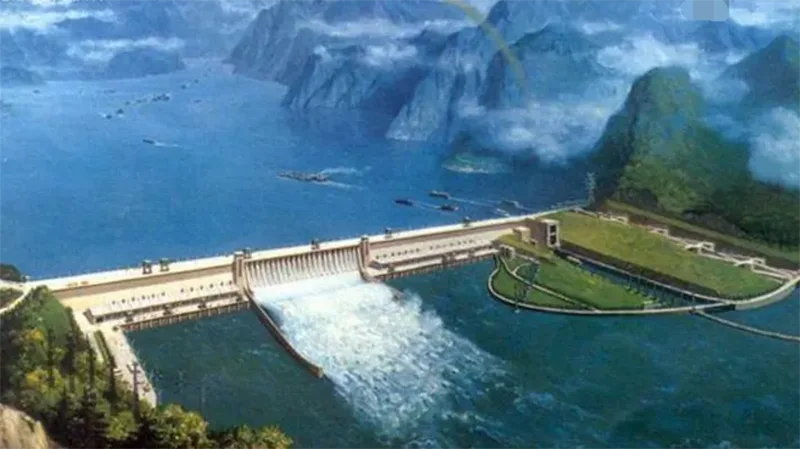
There are many rivers in the world. Also so many countries face the issues of frequent floods and a lack of water resources. With the in-depth development of water conservancy project construction in different countries, long-distance and ultra-long-distance water transfer and storage have emerged one after another. The existing communication means based on twisted pairs as well as carrier waves are increasingly unable to satisfy the demands of the industry. Safety monitoring, image monitoring, power information collection, control of damns, and power collection, control, image monitoring, voice scheduling of pumping stations and gates have put forward higher requirements for communication networks.
Water quality monitoring using IoT
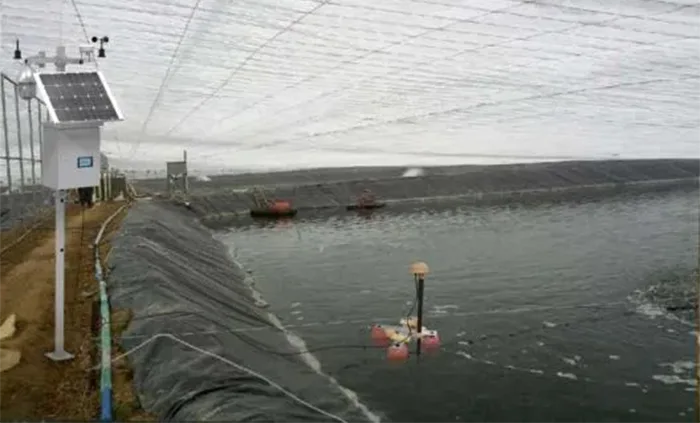
The rapid economic growth of different nations has brought about various pollution problems. One of the most serious issues lies in water pollution.
Water is an essential natural resource for human survival, and water pollution can damage human health and endanger life safety so the protection of water resources has attracted great attention from all countries.
In order to implement the prevention and pollution control of water resources, the design and implementation of a reasonable and perfect water quality monitoring system is really key. Initially, the process of water quality monitoring is and also requires an on-site operation. What’s more, the monitoring of water quality is not real-time, and the water quality data cannot be intelligently classified and determined.
By using the Internet of Things, we developed an online remote water quality monitoring system.
The system is comprised of three sections:
1. The water quality data collection and transmission of monitored nodes. In the monitoring points, the water collection cards of the water quality sensors can be used to transfer the water quality parameter data to the on-site computers. Then after the calculation of the proportion of specific water quality parameters, the system can derive the concentration value of the corresponding parameters. Then the water quality parameters and node ID identification, monitoring time and other information are encapsulated into a JSON object sent to the backend server through the wireless network. Finally, the data is going to be conserved in the MySql database.
2. The design and implementation of water quality classification. Most of the existing water quality classifications are based on the evaluation of a single factor so it doesn’t reflect the comprehensive water quality situation.
The IoT solutions in smart water management
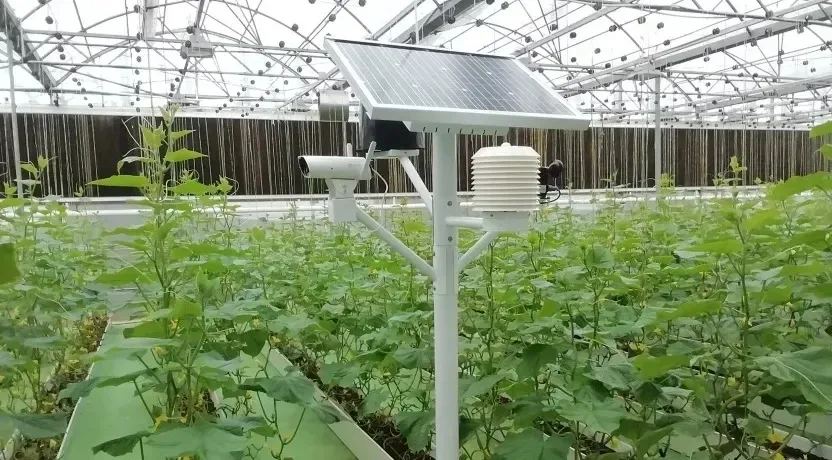
(1) The reduction of water waste in water-intensive industries
A large amount of water resources has been used in agriculture, manufacturing or electricity production. In terms of agriculture alone, it accounts for seventy percent of all water consumption. According to the data provided by the United Nations Food and Agriculture Organization, about 60 percent of its water resources have been wasted in the agricultural sector.
Agricultural producers must cope with increasingly erratic weather situations, which lead to a hotter and drier growing season.
Real-time water meter applications including an intelligent irrigation system or a water management system for crop can give hands to farmers to decrease water waste and also keep the health of soil so as to enhance water-saving and raise crop yields.
(2) Water quality monitoring for fighting against pollution and diseases
Manufacturing and other human activities are possible to pollute rivers and groundwater. The sensors and IoT technologies that can achieve real-time monitoring as well as control are conducive to detect and eliminate pollution and even boost water quality.
(3) Raise the awareness of water consumption households using smart water meters
A lot of households feel guilty for wasting water but they don’t realize the huge changes of their behaviors will bring a lot of benefits to them.
Most utility providers are now deploying smart meters to facilitate remote monitoring and billing. As a result, the information is also prepared to be accessible to users, which is an actual encouragement for individual users to save money by reducing their water bills right now.
The Cases of IoT technologies in smart water management
The IoT application in smart sewage management system
Wastewater treatment remains a very vital part of water management. The process of wastewater treatment is a biochemical process with an extremely complicated treatment process, which is very difficult to make it work consistently over time. Its operation and management are mostly carried out by professionals through their many years of experience. This requires management and operators to use their specialized knowledge of the industry. Also, they should be on site at all times to ensure that the problem can be dealt with instantly.
The application direction of smart water management
There are a lot of specific application scenarios of smart water management. It can be grouped together by functional classification, roughly divided into three general directions: intelligent monitoring, integrated control, fine scheduling.
- Smart monitoring and testing
Intelligent monitoring is the most basic function of intelligent water services. In water management services, real-time monitoring of water quality in various links should be conducted to ensure the standardized water quantity as well as water quality, and also ensure real-time monitoring of equipment in various parts of water service so as to ensure the normal operation of equipment. Various links and aspects of intelligent water services as well as intelligent monitoring make up for the lack of human resources in the work of water services. Early prevention, timely monitoring and rapid warning can also be achieved to conduct intelligent monitoring of water and rain, prevention of flash floods and also regional flash flood disasters.
- Comprehensive control and management
Intelligent water services can comprehensively control the water process of raw water, water extraction, water production, water transmission, pressurized water delivery, water consumption, drainage and other links to achieve full process supervision and realize the whole process of remote supervision and intelligent linkage control to optimize production scheduling and ensure efficient water supply. Also, it can promote energy saving and consumption reduction, decrease the difference between production and sales, which is an important way for the water division to achieve intelligent operation. The river-chief system management, smart water plant, sewage plant integration can effectively control the whole process of water services, real-time records, problem reporting, rectification and improvement, so that all aspects of water services can achieve closed-loop management.
- Fine-scheduling water transfer
The SCADA system for water supply network can meet the demand for fine scheduling of intelligent water services. With the scheduling center centrally monitoring the operation of the water supply network in the whole region, it can remotely measure flow, pressure, water level and other data, and collect, transmit and store them in real time to realize the whole-process supervision and intelligent linkage control, guaranteeing efficient water supply and promoting energy saving and consumption reduction.
















